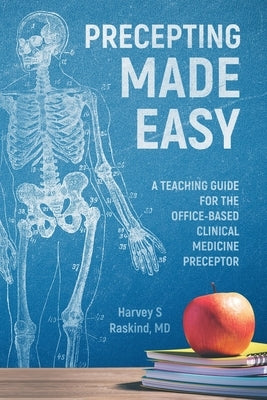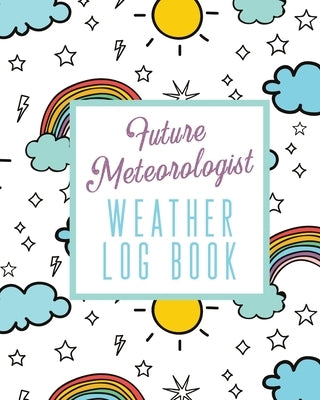Sale 10% Off Your First Order
Sale 10% Off Your First Order
Movies & TV
Toys & Collectibles
- Home
- Galileo's Classroom: Astronomy Learning Activities, 2nd Edition
Description
This 2nd edition of the original Galileo's Classroom collection of ready-to-use astronomy lesson plans meets inquiry-based teachers' and professors' needs for innovative astronomy classroom activities.Today, teachers and professors across the planet have embraced the same challenge Galileo encountered-to share the excitement of astronomy with their students. And, as it was in Galileo's time, simply asking students to memorize facts, figures, and formulas are far from appetizing. Galileo's Classroom (2ed) is a generously donated collection of classroom-ready astronomy lesson plans contributed by some of today's most notable and enthusiastic astronomy educators. Although most of these activities require no specialized equipment, some teachers have found that these astronomy teaching activities nicely align with the capabilities of the easy-to-use and inexpensive Galileoscope.This collection was compiled and edited by Stephanie Slater, Janelle Bailey, and the late Michael Gibbs from the generous contributions of: Doug Arion, Mike Brotherton, Kevin Grazier, Erika Grundstrom, Inge Heyer, Michael LoPresto, David McKinnon, Cherilynn Morrow, Steve Pompea, Stephanie Shipp, Christine Shupla, Kendra Sibbernsen, Rob Sparks, Timothy F. Slater, and Connie Walker.
About the Author
Stephanie J. Slater, Ph.D., is a science-trained, cognitive scientist specializing in how people of all ages and backgrounds engaging in learning the Earth and space sciences. With more than 20 years of astronomy teaching experience, she is the Director of the CAPER Center for Astronomy & Physics Education Research where her scholarly research focuses on conceptual understanding as influenced by spatial reasoning abilities and cognitive load and how these aspects interact with individual¹s attitudes toward science and society. The American Physical Society's Woman Physicist of the Month, she is also a frequent lecturer at science fiction conventions, illustrating how society reacts to unexpected advances in space and technology. Janelle M. Bailey, Ph.D., is an Associate Professor and the Co-Director of TUteach at Temple University. Her research interests include the teaching and learning of science, particularly astronomy, and has recently embarked on a new research direction around beliefs of preservice science teachers. She teaches science methods courses for both undergraduate and graduate students and works with student teachers during their apprenticeship semester in secondary schools. She served as the President of the American Association of Physics Teachers, as well as twice as Chair of its Space Science and Astronomy Committee. The late Dr. Michael G. Gibbs attended DePaul University where he earned his bachelors, masters and doctorate in education. Michael began his career as an Assistant Vice President at DePaul University pursuing his passion for education and travel, visiting 36 countries. Following his position at DePaul University he went on to become the Advancement Director of the Astronomical Society of the Pacific (ASP) in San Francisco. He was published in numerous educational magazines, journals and books. Michael continued his passion for education as the Vice President of Advancement at Capitol College in Laurel MD. While at Capitol he was the director for the Space Science Educational and Public Outreach program. He was also an associate professor for Capitol College teaching graduate level courses in Leadership and Innovation, plus Developing the Dissertations, on the Leadership and Management Doctorate Program and working at the Planetary Science Institute as the Deputy Director & Chief Advancement Officer.
About the Author
Stephanie J. Slater, Ph.D., is a science-trained, cognitive scientist specializing in how people of all ages and backgrounds engaging in learning the Earth and space sciences. With more than 20 years of astronomy teaching experience, she is the Director of the CAPER Center for Astronomy & Physics Education Research where her scholarly research focuses on conceptual understanding as influenced by spatial reasoning abilities and cognitive load and how these aspects interact with individual¹s attitudes toward science and society. The American Physical Society's Woman Physicist of the Month, she is also a frequent lecturer at science fiction conventions, illustrating how society reacts to unexpected advances in space and technology. Janelle M. Bailey, Ph.D., is an Associate Professor and the Co-Director of TUteach at Temple University. Her research interests include the teaching and learning of science, particularly astronomy, and has recently embarked on a new research direction around beliefs of preservice science teachers. She teaches science methods courses for both undergraduate and graduate students and works with student teachers during their apprenticeship semester in secondary schools. She served as the President of the American Association of Physics Teachers, as well as twice as Chair of its Space Science and Astronomy Committee. The late Dr. Michael G. Gibbs attended DePaul University where he earned his bachelors, masters and doctorate in education. Michael began his career as an Assistant Vice President at DePaul University pursuing his passion for education and travel, visiting 36 countries. Following his position at DePaul University he went on to become the Advancement Director of the Astronomical Society of the Pacific (ASP) in San Francisco. He was published in numerous educational magazines, journals and books. Michael continued his passion for education as the Vice President of Advancement at Capitol College in Laurel MD. While at Capitol he was the director for the Space Science Educational and Public Outreach program. He was also an associate professor for Capitol College teaching graduate level courses in Leadership and Innovation, plus Developing the Dissertations, on the Leadership and Management Doctorate Program and working at the Planetary Science Institute as the Deputy Director & Chief Advancement Officer.
Related Products
You May Also Like
-
$19.99 $20.97
-
-
$12.99 $18.00
Recently Viewed Products
Related Products
Recently viewed products
Shopping cart
close
-
WHAT ARE YOU LOOKING FOR?Search
- Home
- Movies & TV
- Music
- Toys & Collectibles
- Video Games
- Books
- Electronics
- About us
- Castle Chronicles
- Contact us
- Login / Register








